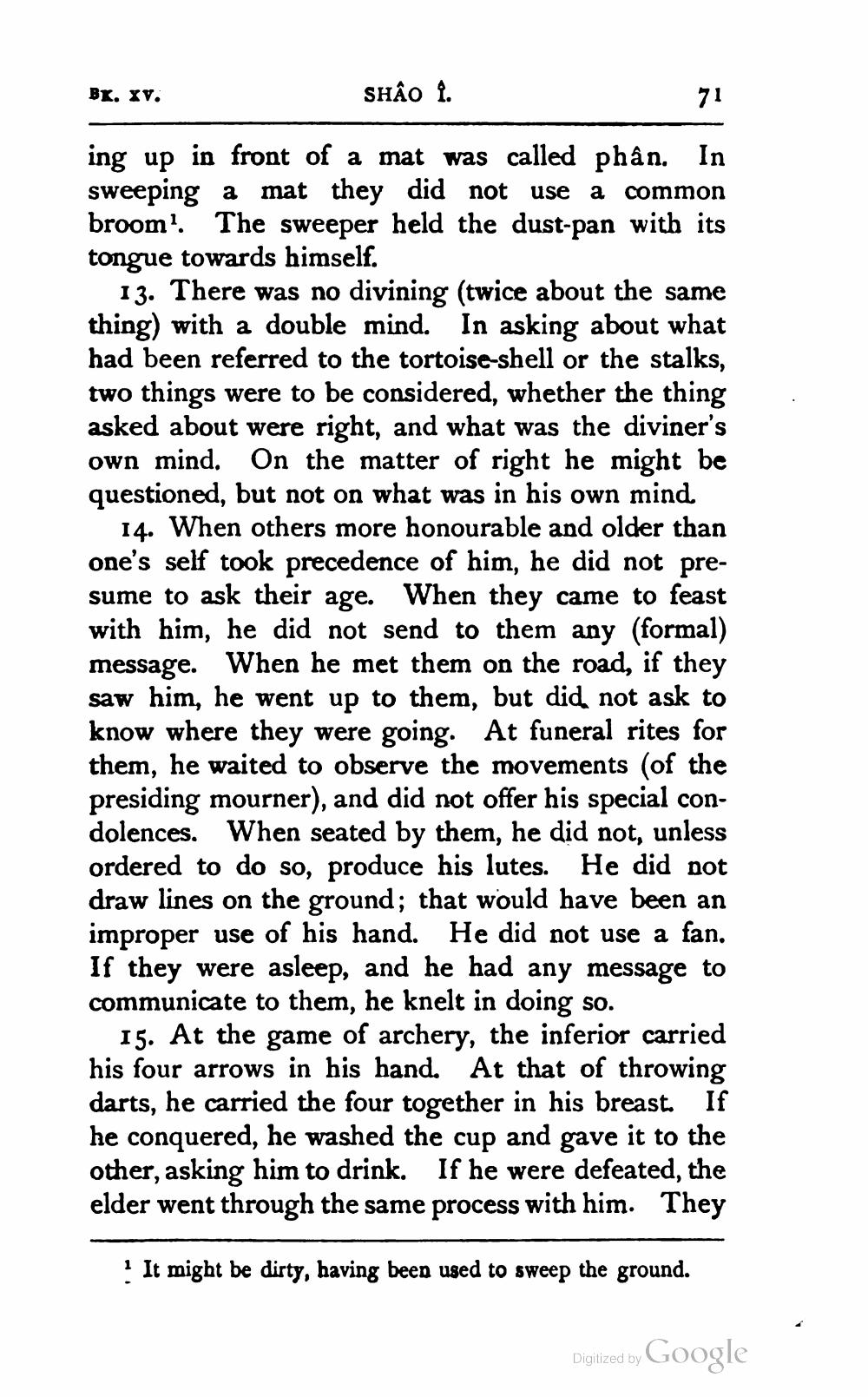________________
BK. XV.
SHẢO Ý.
ing up in front of a mat was called phân. In sweeping a mat they did not use a common broom. The sweeper held the dust-pan with its tongue towards himself.
13. There was no divining (twice about the same thing) with a double mind. In asking about what had been referred to the tortoise-shell or the stalks, two things were to be considered, whether the thing asked about were right, and what was the diviner's own mind. On the matter of right he might be questioned, but not on what was in his own mind.
14. When others more honourable and older than one's self took precedence of him, he did not presume to ask their age. When they came to feast with him, he did not send to them any (formal) message. When he met them on the road, if they saw him, he went up to them, but did not ask to know where they were going. At funeral rites for them, he waited to observe the movements (of the presiding mourner), and did not offer his special condolences. When seated by them, he did not, unless ordered to do so, produce his lutes. He did not draw lines on the ground; that would have been an improper use of his hand. He did not use a fan. If they were asleep, and he had any message to communicate to them, he knelt in doing so.
15. At the game of archery, the inferior carried his four arrows in his hand. At that of throwing darts, he carried the four together in his breast. If he conquered, he washed the cup and gave it to the other, asking him to drink. If he were defeated, the elder went through the same process with him. They
? It might be dirty, having been used to sweep the ground.
Digitzed by Google




